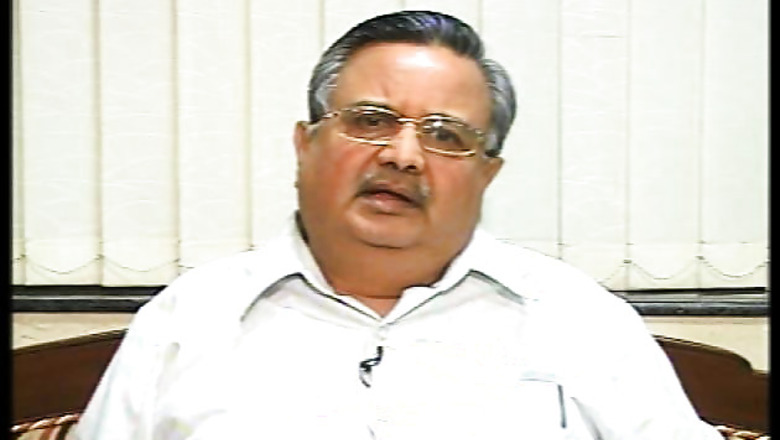
views
Distribution of rice at subsidised price to poor families in Chhattisgarh seems to have done the trick for Raman Singh, the 'Chaur wale baba' (rice man) who proved wrong all political analysis and opinion polls to emerge victorious for the third consecutive term in the state.
The Chhattisgarh Food Security Act, which he is credited of bringing in much before the National Food Security Act, is being dubbed as a game changer for 61-year-old Singh.
Rival Congress admits in private that the food security legislation in the state was a "game changer". Implementation of Chhattisgarh Food Security Act, subsidised distribution of salt, pulses and rice through a Public Distribution System (PDS) helped the ruling BJP to get a consecutive third term in power, analysts say.
Chhattisgarh, popularly known as the rice bowl of central India, also witnessed an aggressive campaigning over rice from both ruling BJP and main Opposition Congress. Both of them had offered subsidised rice in their manifestos to attract voters.
Congress had declared to give 35 kg of rice free of cost to people living Below Poverty Line (BPL) and Above Poverty Line (excluding income tax payee) if they form the government.
Whereas, BJP had relied on its much-touted transparent PDS and subsidised rice to people under Antyodaya (extremely poor) and BPL category. The Chhattisgarh government is already providing rice at Rs one and Rs two per kg to people of Antyodaya and BPL category respectively.
It has promised to provide rice at Rs one per kg to poor people in its manifesto.
"The one-point agenda of Chief Minister Raman Singh throughout his campaigning and his government was development. At the same time, he ensured food and nutritional security to people of the state," said a senior state BJP leader.
Besides his food security mantra, Singh is also credited with the Chief Minister Health Scheme to provide free treatment worth Rs 30,000 to a citizen. Congress party leaders, however, blamed poor analysis of ground realities as the main reason for losing the election.
"We have successfully realised ground situation in 18 constituencies which went to polls (on November 11) in the first phase of the elections and recorded victory there. However, in remaining 72 constituencies of second phase (polling on November 19), we could not work much harder for many reasons on these seats," said Bhujit Doshi, spokesperson of Chhattisgarh Pradesh Congress Committee.
Another senior state Congress leader said that subsidised distribution of rice was also one of the reasons behind BJP winning the polls. BJP won 49 seats in the 90-member Chhattisgarh assembly while Congress was victorious in 39 seats. BJP had won 50 seats in 2008 Assembly elections.
According to latest central government data of rice production, Chhattisgarh was seventh largest contributor of the grain in the country. West Bengal was highest with 14.6 million tonnes production followed by Uttar Pradesh with 14.02 million tonnes, Andhra Pradesh with 12.89 million tonnes, Punjab with 10.54 million tonnes, Tamil Nadu with 7.45 million tonnes, Bihar with 7.16 million tonnes and Chhattisgarh with 6.02 million tonnes during 2011-12, the data said. India has recorded 105.37 million tonnes of rice production during 2011-12.















Comments
0 comment